
The 1914 Arizona gubernatorial election took place on November 3,1914,for the post of the Governor of Arizona. The Supreme Court of Arizona ruled that there would be no statewide elections in 1912,thus extending the terms to sync up with elections on even years. The Democratic nominee was incumbent governor George W. P. Hunt,his Republican opponent was the final Delegate to Congress from Arizona Territory,Ralph H. Cameron. Cameron was disadvantaged by the same reason the previous Republican nominee Wells was:he had opposed statehood with the present Constitution.

Fred Arthur Sutter Sr. was an Arizona attorney and politician. He ran several times,unsuccessfully,for governor of the state,and was elected several times to the state legislature.
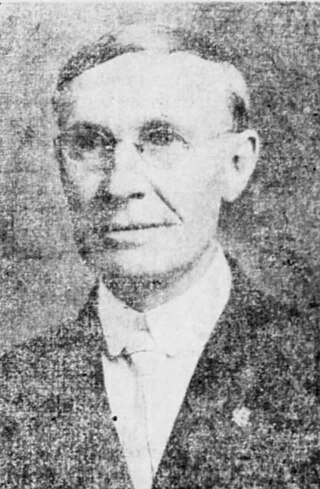
William Prescott Sims ) was a politician and dentist from Arizona. He served in Arizona State Senate in the 1st,2nd,and 5th - 7th State Legislatures. He served as the President of the Senate during the 2nd Legislature.

Charles M. Roberts was an American politician who served in the first Arizona State Senate.
Alfred Kinney was a politician from Arizona. He was one of the first two state senators from Gila County,serving in the first three state legislatures,and the 6th through 10th legislatures,a total of eight legislatures overall.
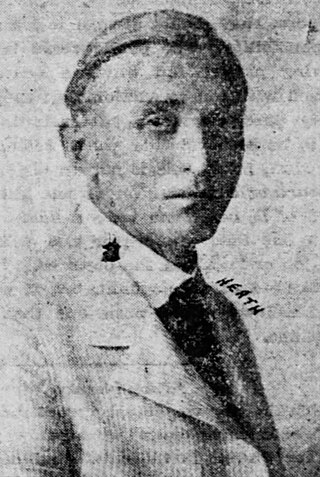
H. A. Davis (1879-1946) was an American politician from Arizona,who served as a senator in the 1st Arizona State Legislature. He was also a newspaperman and owned a printing business.
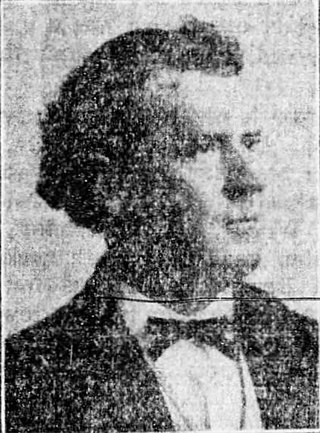
Colonel A. A. Worsley was a politician from Arizona who served in the 1st Arizona State Legislature. Worsley was also an attorney,who practiced in Tucson,Arizona. He was married to Alice J. Worsley.

Sam F. Webb was a politician from Arizona who served in the Arizona legislature for several terms,both when it was a territory and after it became a state. He served in the state house of representatives during the 12th,14th,and 25th Arizona Territorial Legislatures,and in the upper house of the legislature,called the council,during the 15th Arizona Territorial Legislature. During the 14th and 25th legislatures he served as Speaker. He also served in the Arizona State Senate during the 2nd Arizona State Legislature. He held several other governmental positions over the years,including customs inspector for Arizona,Maricopa County treasurer,as well as serving in both the Maricopa County's assessor's and recorder's offices,and a short stint as a deputy U.S. Marshall. He also operated several successful mining operations in both Arizona and Sonora,Mexico,was both a rancher and farmer,and was the editor of several papers in Tucson and Phoenix.
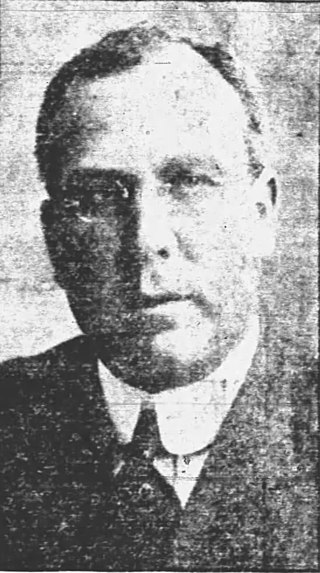
Mose Drachman was a pioneer business and civic leader,as well as politician,in Tucson,Arizona,during the early 1900s. He was involved in numerous interests,including mercantile,real estate,banking,mining,and cattle. He served as the Senior Clerk for the U.S. District Court in Arizona during the term of William H. Sawtelle,served two terms on the Tucson City Council,and five consecutive terms on the Tucson Board of Education,as well as being on both the Tucson and Phoenix chambers of commerce. He also served a single term in the Arizona state senate during the 2nd Arizona State Legislature. Two books were written about his life,Ridin' the Rainbow,and Chicken Every Sunday,the latter being made into a Broadway play,as well as a motion picture of the same name.
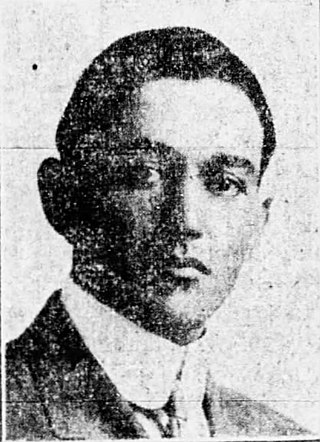
Andrew P. Martin was an Arizona politician who served a single term in the Arizona State Senate during the 2nd Arizona State Legislature. He was known as the father of the Arizona National Guard,having organized and led the first company in the territory in 1910. With no formal education in pharmacology,he became a registered pharmacist,and grew his father's single drugstore to become the largest drugstore chain in Tucson,before selling it in 1954. He was also called the father of the University of Arizona College of Pharmacology,having led the drive to establish the school. In addition,he saw combat as an artillery soldier during World War I.

John W. Buchanan (1871–1941) was an American politician from Arizona who served in the states first three legislatures,the first two in the House of Representatives,and the third in the State Senate. During his political career he also served as Pima County Treasurer and as Tucson's City Treasurer.
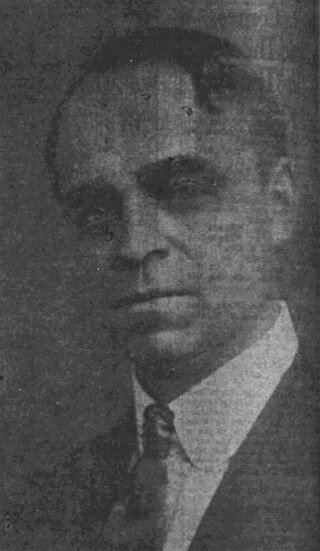
Fred Ormal Goodell (1876-1961) was an Arizona politician who served three consecutive terms in the Arizona State Senate from 1917 through 1922. Very active in the Masons,he served in all of their major posts in Arizona,including being the Grand Master of Masons in Arizona,the Grand Commander of Knights Templar in Arizona,the Grand Master of A. &S. M. of Arizona,and the High Priest of R. A. M. of Arizona. He served as the county comptroller for Pima County for 21 years,from 1935 to 1956.
David C. O'Neil was an American politician from Arizona. He served a single term in the Arizona State House of Representatives during the 3rd Arizona State Legislature,and a single term in the Arizona State Senate during the 4th Arizona State Legislature. He served 13 years on the Arizona State Tax Commission,6 of them as chairman. He was appointed in 1934 to serve the last year of an unexpired term,then was re-elected twice,in 1934 and 1940. Early in his career he worked in the hospitality and transportation industries.
Harold A. Elliott was an American lawyer and politician from Arizona. He served several terms in the Arizona State Senate from the 4th Arizona State Legislature through the 7th Arizona State Legislature. He graduated from the University of Michigan Law School,and became an attorney,eventually becoming Phelps Dodge's chief counsel.

Albert Rex Buehman was an American photographer and politician from Arizona. He served a single term in the Arizona House of Representatives during the 3rd Arizona State Legislature,followed by a single term in the Arizona State Senate during the 4th Arizona State Legislature,holding one of the two seats from Pima County. He was unsuccessful in bids for the U. S. House of Representatives in 1948 and for the Mayor of Tucson in 1955. The photography business his father began in 1873 in Tucson was the oldest photography studio in Arizona when it closed in 1956. His daily column in the Arizona Daily Star ran from 1950 through 1954.

Anthony A. Johns was an American politician from Arizona. He served a single term in the Arizona State Senate during the 4th Arizona State Legislature,holding one of the two seats from Yavapai County,as well as serving as President of the Senate. He also held one of the seats from Yavapai County in the Arizona House of Representatives three times,in the 2nd,3rd and 13th Arizona State Legislatures,serving as the Speaker of the House during the 3rd Legislature. He was a long-time resident of Prescott,and one of the largest sheepherders in Yavapai County. Other business interests included mining and construction. Other offices held included a regent for the University of Arizona,chairman of the Arizona Highway Commission,chief of the Prescott Fire Department,president of the Arizona Wool Growers Association,and vice-president of the National Wool Growers Association.
Joseph H. Lines was an American politician from Arizona. He served a single term in the Arizona State Senate during the 5th Arizona State Legislature,holding the single seat from Graham County.

Elias Hedrick (1862-1949) was an American politician from Arizona. He served a single term in the Arizona State Senate during the 5th Arizona State Legislature,holding the seat from Pima County. Prior to his senate term,Hedrick served a single term in the Arizona House of Representatives during the 4th Arizona State Legislature. He was known as a philanthropist,particularly to the Methodist Episcopal Church in Tucson,Arizona. Outside of politics he was a highly successful real-estate man.
A. J. Eddy (1880-1976) was an American politician from Arizona. He served a single term in the Arizona State Senate during the 5th Arizona State Legislature,holding the two seat from Yuma County. He also served two terms in the Arizona House of Representatives,and was a long time deputy attorney for Yuma County. He was a veteran of the Spanish-American War,and in 1922 set a legal precedent when his testimony became the first time forensic ballistics was used in the conviction of a murderer in the United States.

Thomas Collins was an American politician from Arizona. He served several terms in the Arizona State Senate,his first stint lasting from the 10th through 12th Arizona State Legislatures,holding one of the two seats from Pima County. He also served from Pima County during the 20th and 22nd Arizona State Legislatures. He also served several terms on the Pima County Board of Supervisors.















